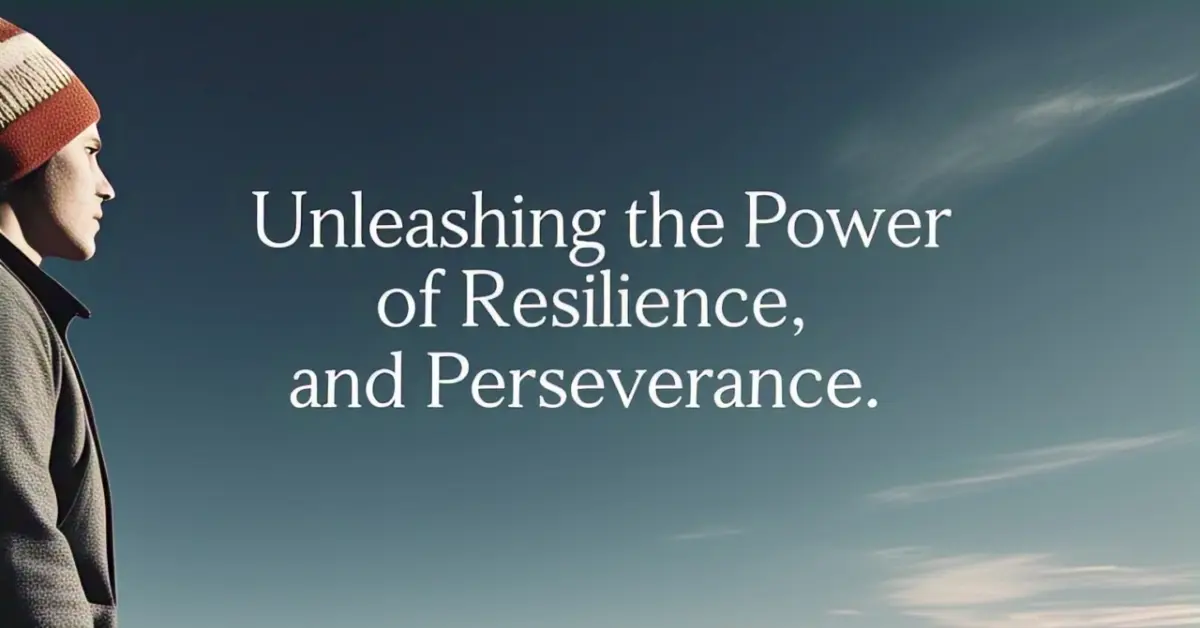You commence on a journey that seeks to uncover the essence of your existence and the deeper meaning behind your experiences. Understanding purpose is crucial for navigating your life’s path and making choices that lead to genuine fulfillment. As you explore what drives you, the challenges you face will become opportunities for growth, helping you to align your values and passions with the life you desire. This blog post will guide you through practical steps and insights that will aid you in your pursuit of purpose, ensuring a richer, more meaningful life journey.
Understanding Purpose
A deep understanding of purpose can serve as a guiding light in your life’s journey. It encompasses the essence of what drives you, shapes your decisions, and ultimately leads you toward fulfillment. By identifying your purpose, you can navigate the complexities of life with clarity and conviction, setting the stage for a more meaningful existence.
Defining Purpose in Life
Purpose is the core motivation that fuels your passions and ambitions. It often manifests as a sense of direction, guiding you through challenges and celebrating your successes. When you define your purpose, you align your actions and goals with your intrinsic values, creating a cohesive narrative that gives significance to your experiences.
Understanding your purpose is not solely about personal achievement; it also relates to your impact on the world around you. It involves recognizing how your unique gifts and talents can contribute to the collective human experience. When you embrace your purpose, you not only enhance your own life but also enrich the lives of those around you.
The Philosophical Roots of Meaning
Defining the philosophical underpinnings of meaning reveals the intricacies of human existence. Different cultures and thinkers have contemplated the essence of purpose throughout history, leading to diverse interpretations that can inspire your own quest for meaning. Philosophers like Aristotle believed that achieving “eudaimonia” or human flourishing was the ultimate goal, while existentialists argued that you must create your own meaning in a seemingly indifferent universe.
By exploring these philosophical roots, you can better understand how your personal beliefs align with broader concepts of purpose. Engaging with these ideas encourages you to reflect critically on your values and aspirations, pushing you to articulate what truly matters in your life.
The Science of Purpose: Psychological Insights
Science has increasingly shown that having a sense of purpose can significantly enhance your mental and emotional well-being. Research indicates that people who possess a clear sense of purpose tend to experience lower levels of stress, anxiety, and depression. This understanding highlights the importance of purpose not merely as an abstract concept but as a vital component of a healthy and balanced life.
Through various psychological studies, it has been found that individuals with a strong sense of purpose often exhibit greater resilience in the face of challenges. They are more likely to set and achieve their goals, foster deeper relationships, and experience overall life satisfaction. This wealth of evidence reinforces the idea that discovering and nurturing your purpose can lead to a more fulfilling and enriched life.
Insights gathered from psychological research can also guide you in building a purposeful life. Techniques such as mindfulness practices, journaling, and goal-setting exercises can serve to clarify your sense of purpose and align your daily activities with your overarching values. Doing so allows you to weave a more satisfactory and meaningful narrative throughout your life’s journey.
The Importance of Meaning
You may often find yourself questioning what truly makes life worthwhile. The search for meaning is not just a philosophical exercise; it is a vital aspect of your existence that shapes your ambitions, drives your choices, and influences your overall well-being. Understanding the importance of meaning helps you connect the dots in your life, creating a tapestry woven with purpose that leads to a more fulfilling experience.
Benefits of Living with Purpose
One of the most significant benefits of living with purpose is the sense of direction it provides in your life. When you have a clearly defined purpose, every action you take aligns with your values and aspirations. This alignment creates a powerful sense of motivation, enabling you to pursue your goals with vigor and resilience. Furthermore, having a purpose can give you context during challenging times, allowing you to navigate life’s hurdles with a greater sense of clarity and focus.
Another profound benefit lies in the increased feelings of fulfillment and satisfaction that often accompany a purposeful life. With purpose at the forefront of your activities, you’ll likely experience deeper connections with others and feel more engaged in your surroundings. This sense of belonging and involvement can lead to more meaningful relationships and a richer social life, ultimately contributing to your overall happiness and well-being.
Connection Between Purpose and Mental Health
Any conversation about purpose must address its significant connection to mental health. Research consistently shows that individuals who lead purposeful lives tend to exhibit better mental well-being. The pursuit of a meaningful goal fosters resilience, which can help protect you against stress, anxiety, and depression. When you feel connected to something larger than yourself, your daily struggles often feel more manageable, allowing you to maintain a healthier mental and emotional state.
Importance of this connection cannot be emphasized enough. A myriad of studies supports the idea that having purpose is associated with lower rates of mental illness. People with a clear sense of purpose are often more optimistic and have higher overall life satisfaction. This sense of agency diminishes feelings of isolation and despair, creating a positive feedback loop where mental health improves as your sense of purpose strengthens.
Purpose vs. Happiness: A Balancing Act
Before delving deeper into the concept of purpose, it’s vital to differentiate between purpose and happiness. While they are interconnected, they are not synonymous. Happiness often relates to fleeting pleasures or joyfulness experienced in the moment, whereas purpose is about long-term fulfillment and contribution. By understanding this distinction, you can better navigate the balance between seeking immediate joy and pursuing lasting significance in your life.
The interplay between purpose and happiness is indeed complex. Engaging in activities that spark happiness while still pursuing your ultimate purpose can create a rich and fulfilling life. However, if the pursuit of happiness compromises your sense of purpose, you may find yourself feeling unfulfilled. Striking this balance requires mindfulness and self-reflection, ensuring that your daily actions serve a greater purpose, helping you cultivate not just temporary happiness but lasting joy in your journey.
Common Barriers to Finding Purpose
Despite the importance of finding purpose in your life, there are several barriers that can make this journey challenging. Acknowledging and understanding these obstacles is the first step towards overcoming them and discovering what truly matters to you. By actively addressing these common barriers, you can pave a clearer path to meaning and fulfillment in your life.
Societal Expectations and Norms
Below, you will find that societal pressures often dictate what success and purpose should look like, leading you to make choices that may not align with your personal values and aspirations. From an early age, you are exposed to messages about the “right” career paths, lifestyles, and even relationships. These external expectations can create a conflicting narrative within you, urging you to conform rather than explore your own beliefs and desires. Consequently, you may find yourself trapped in a cycle of pursuing goals that feel imposed rather than intrinsically motivated.
To navigate this barrier, it is vital to take a step back and assess how much of your current path is a reflection of your true self versus the influence of societal norms. Engaging in introspective practices, such as journaling or meditative contemplation, can help you clarify your values and redefine your personal definition of success. The freedom to exist outside of societal expectations allows for a more profound exploration of your passions and interests, ultimately guiding you toward discovering your authentic purpose.
The Role of Fear and Uncertainty
With the journey to find purpose often comes fear and uncertainty, which can be significant roadblocks. You may worry about making the wrong choices, facing failure, or experiencing judgment from others. This fear can create a paralysis that keeps you from taking the necessary steps towards exploring your passions. Instead of embracing uncertainty as a natural part of growth, you might avoid situations that challenge you, thus denying yourself the opportunity to uncover what truly fulfills you.
Considering these fears, it’s vital to reframe your perspective on uncertainty. Embracing the unknown can be an empowering choice; it opens doors to new experiences and insights. Acknowledging that growth often occurs outside your comfort zone enables you to cultivate resilience. By intentionally taking small, calculated risks, you can gradually diminish the power of fear, paving the way for discoveries that resonate deeply within you.
The Impact of Modern Technology and Distraction
Around you, modern technology has created an environment filled with distractions that can divert your attention from self-discovery. With constant notifications, social media updates, and endless information streams, it’s easy to become overwhelmed and lose sight of what truly matters. These distractions not only consume your time but also contribute to a superficial understanding of what brings you joy and fulfillment. Instead of introspection and personal growth, you might find yourself lost in the digital landscape, responding to the needs of others rather than your own.
Another aspect of this impact is the tendency to compare yourself to others, especially on social media platforms. You may find yourself scrolling through curated highlights of other people’s lives, feeling inadequacy in your own pursuits. This external comparison can cloud your vision, leading you away from your unique path and purposes. Finding ways to minimize these distractions, such as setting boundaries for technology use and dedicating time for self-reflection, can help you reconnect with what you value most and foster a deeper understanding of your inner self.
Discovering Personal Values
After commenceing on your journey to find purpose, the next critical step involves discovering your personal values. Your values serve as the guiding principles in your life, shaping your decisions, behaviors, and ultimately your sense of fulfillment. By identifying what truly matters to you, you can create a clearer framework for your actions and aspirations.
Identifying Core Values Through Reflection
At the heart of understanding your values is the process of reflection. Take some time to consider the moments in your life that have brought you the most joy, pride, or satisfaction. What experiences stand out? Are there certain themes or beliefs that consistently resonate with you during these moments? This deeper introspection will allow you to isolate your core values, providing insight into what you truly cherish and aspire to uphold.
Additionally, think about the times you have felt discomfort, frustration, or disappointment. These feelings often stem from situations where your values were compromised or ignored. By recognizing these emotional reactions, you can further clarify which values are non-negotiable in your life. Often, the juxtaposition of pleasure and pain can shed light on the principles that matter most to you.
The Role of Passion in Shaping Purpose
Reflection on your passions can also illuminate your purpose in life. Your passions are those activities or causes that ignite enthusiasm within you. They often correlate with your core values and offer a pathway to living a purpose-driven life. When you engage in what you love, you feel more energized, engaged, and fulfilled, leading to a powerful sense of meaning.
But understanding the interplay between passion and purpose requires ongoing evaluation. As you explore various interests and experiences, you may discover new passions that resonate with your values, driving you toward a more fulfilling life. This dynamic process emphasizes that your purpose is not static; it evolves as you gain deeper insights into what motivates and inspires you.
Aligning Actions with Values: A Practical Guide
By actively aligning your actions with your values, you set the stage for a more meaningful existence. Start by determining specific goals that reflect your core values and passions. Break these goals down into actionable steps and integrate them into your daily routine. Creating a roadmap that aligns with who you are at your core will help steer your life’s direction toward genuine fulfillment.
Furthermore, regularly assess your progress and make adjustments as needed. Life’s journey is not linear, and your values and passions may shift over time due to new experiences or insights. By being responsive to these changes, you ensure that your actions continually align with your evolving self, making it easier to navigate challenges and opportunities alike.
Strategies for Cultivating Purpose
Unlike moments of fleeting joy or temporary satisfaction, cultivating a deeper sense of purpose requires intentional strategies that align with your values and aspirations. Finding purpose isn’t a one-size-fits-all proposition; it necessitates a journey of self-discovery that encompasses your passions, strengths, and the impact you wish to create in the world. Implementing effective strategies can guide you toward a more meaningful existence that resonates with your identity and contributions.
Setting Meaningful Goals
By setting meaningful goals, you create a roadmap that directs your energies and efforts toward what truly matters to you. Take the time to reflect on your values and dreams, identifying what goals resonate with your vision for a purposeful life. Ensure that these goals are specific, measurable, achievable, relevant, and time-bound (SMART), as this will enhance your commitment and motivation to reach them. As you progress, celebrate small victories along the way to maintain momentum and reinforce your sense of purpose.
By regularly revisiting and adjusting these goals, you remain adaptable to life’s changing circumstances. A meaningful goal serves as a north star, guiding your actions and decisions while providing you with clarity and direction. In doing so, you will find that the pursuit itself can be as fulfilling as the achievement of the goals, leading you to a deeper understanding of your place in the world.
Building Resilience Through Challenges
To cultivate resilience, it’s imperative to embrace challenges as opportunities for growth rather than obstacles to be avoided. When you encounter difficulties, view them as stepping stones that can deepen your understanding of yourself and your purpose. This mindset fosters a sense of empowerment that allows you to face adversity with courage and determination. By learning to navigate through tough times, you enhance your inner strength and develop a greater appreciation for your journey.
To further solidify this resilience, practice self-compassion and accept that setbacks are part of the human experience. Give yourself grace during challenging moments and acknowledge that facing adversity often leads to profound insights. Reflect on past experiences where you overcame challenges, enabling you to build confidence in your ability to handle future obstacles. This will help you embrace life’s uncertainties with a sense of purpose and direction.
It is important to recognize that resilience isn’t just about enduring hardship; it also involves actively learning from each experience. By maintaining a growth mindset, you can transform your challenges into valuable lessons, equipping you with the tools you need to navigate life’s unpredictable journey. This approach not only reinforces your sense of purpose but also allows you to emerge from difficulties stronger and more focused on your aspirations.
The Power of Contribution: Helping Others
Building a sense of purpose can be greatly enhanced by engaging in acts of contribution, whether through volunteering or supporting those around you. Connecting with others and being of service can create a profound sense of fulfillment and belonging. You may discover that your actions, however small, can create ripples of positive change in the lives of others, which in turn strengthens your own sense of meaning and direction.
By actively seeking opportunities to help others, you cultivate a sense of empathy, which further enriches your understanding of the world. This not only fosters your personal growth but also reinforces the interconnectedness of your life and the lives of those you touch. Through these meaningful interactions, you contribute to a broader narrative, solidifying a shared purpose that transcends the individual.
Also, consider how helping others can lead to unexpected rewards, such as building new relationships and enhancing your own support network. By giving of yourself, you not only uplift others but also create a feedback loop of positivity that encourages you to continue your efforts. This ongoing commitment to contribution can significantly shape your journey toward discovering and nurturing your own sense of purpose.
The Evolution of Purpose
Once again, you find yourself at a crossroads in life, pondering the nature of purpose and how it evolves as you journey through different stages. Understanding that purpose is not a static concept is vital; rather, it is a living entity that transforms and adapitates based on your experiences, relationships, and accumulated wisdom. The way you perceive purpose at 20 will differ significantly from what it means to you at 40 or 60, each stage adding layers of context and understanding that shape your overall sense of fulfillment.
Purpose in Different Life Stages
Behind every phase of your life lies a specific set of values, priorities, and aspirations that serve to define your purpose in that moment. In your younger years, you may find yourself driven by ambition, exploring education and career choices, while forming critical relationships. As you advance through adulthood, responsibilities such as family and career often steer your purpose toward providing for others, seeking stability, and nurturing relationships.
As you transition into later stages of life, purpose might take on a reflective quality, focusing more on legacy, mentorship, and community involvement. This journey illustrates how purpose evolves, influenced by growth, the culmination of experiences, and personal insights. Adapting your understanding of what purpose means at each stage allows you to embrace what fulfills you most authentically.
Adapting Purpose Through Life Transitions
Purpose becomes an vital guide as you navigate life’s unpredictable transitions—be it a career change, a personal crisis, or the transition into parenthood. Each of these significant milestones can serve as a reset button, urging you to reevaluate your aspirations and alignment with your core values. Through these changes, you have the opportunity to reflect on what truly fulfills you and how it aligns with your evolving identity.
Understanding how to adapt your purpose requires a proactive mindset. It’s about reassessing your goals, identifying what resonates with your core beliefs, and allowing these new insights to inform your path. Rather than resisting change, embracing it can lead to enriching experiences that redefine your understanding of fulfillment and meaning.
The Role of Reflection in Purpose Reevaluation
Purpose acts as a compass through your life journey, but it can often become obscured by the demands and distractions of everyday living. This is where reflection plays an integral role. By taking the time to contemplate your experiences, values, and aspirations, you can gain clarity on what genuinely matters to you. Engaging in reflective practices allows you to sift through noise and hone in on feelings of achievement and contentment, thus refining your sense of purpose.
To enhance this process, consider adopting strategies such as journaling, meditation, or seeking feedback from trusted friends or mentors. These techniques can provide valuable insights that help you articulate your purpose more clearly. By integrating reflection into your routine, you can cultivate a dynamic approach to purpose that not only adapts as you change but also empowers you to navigate your journey with confidence and intention.
Final Words
Taking this into account, you must understand that the journey to find purpose and meaning in life is a deeply personal and dynamic process. It involves soul-searching and a willingness to reflect on your values, passions, and the impact you want to have on the world. By exploring your interests and accepting the challenges that come your way, you cultivate resilience and adaptability, which are important in navigating the twists and turns of life’s journey. Every step you take, whether it leads you closer to your goals or pushes you into unknown territory, provides valuable lessons and experiences that contribute to your overall sense of fulfillment.
Your pursuit of purpose is not a solitary endeavor; it can be enriched through connections with others, shared experiences, and collective wisdom. Engaging with your community and seeking guidance from mentors can offer insights that inspire and motivate you. As you continue to evolve and grow, it is important to stay open to new possibilities and redefine your path as needed. Ultimately, your journey to find meaning is a rewarding and transformative experience that enables you to live authentically and fully embrace your potential.




